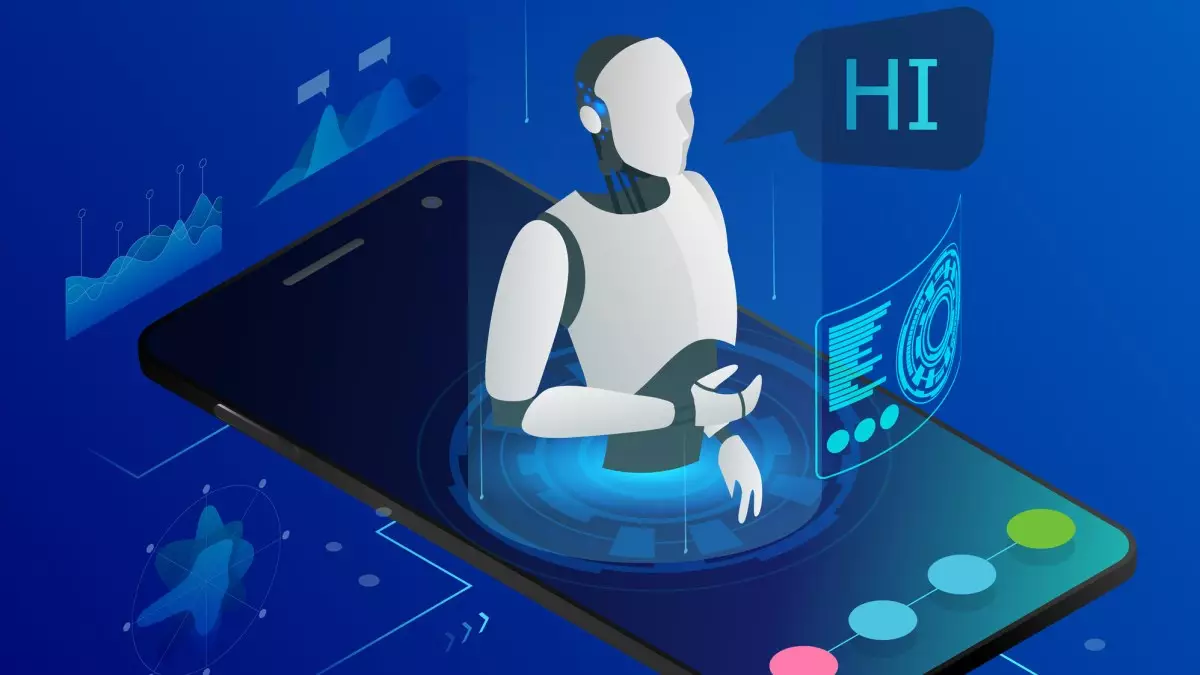In the ever-evolving landscape of Silicon Valley, the emergence of startups with radical ideas is a common spectacle. However, the recent launch of Mechanize, helmed by renowned AI researcher Tamay Besiroglu, challenges the boundaries of credulity. Touted as aiming for “the full automation of all work” and the subsequent replacement of human workers with AI agents, Mechanize invites not only intrigue but also skepticism and criticism regarding its ethical implications and societal impact.
The Automaton Economy: Brilliant or Absurd?
Mechanize proposes an audacious plan to replace human labor with AI-driven agents across all job sectors, targeting a staggering total addressable market of over $60 trillion annually worldwide. On paper, this sounds like a windfall for corporate entities seeking efficiency and cost reduction. Yet, the underlying ramifications pose serious questions about the future of work and the displacement of millions of employees. Besiroglu paints a picture of an economically abundant future, suggesting that humans may pivot to complementary roles in this new AI-dominated landscape. However, this inherently glosses over a crucial reality: if the majority of work is automated, how will people earn their livelihoods to sustain purchasing power?
Criticism from Peers: A Divide in the Tech Community
The backlash against Mechanize has been swift and intense. Respected voices within the tech community, including those affiliated with Besiroglu’s own research organization Epoch, have expressed apprehension. Concerns range from the ethical implications of such sweeping automation to the fear of substantial socioeconomic ramifications. X user Anthony Aguirre raised a poignant point: while the pursuit of labor automation may benefit certain businesses, it could culminate in widespread disenfranchisement and loss of purpose among individuals. This dissent suggests that Mechanize’s ambitious vision, while technically fascinating, may overlook the social contract that binds labor and compensation.
The Dual Roles of Epoch and Mechanize: Conflict or Complement?
Besiroglu’s dual role as the leader of Epoch, a non-profit dedicated to unbiased AI performance assessment, raises complex ethical questions. Critics have rightfully pointed out potential conflicts of interest, especially since Epoch could be perceived as a breeding ground for capabilities that facilitate the kind of corporate-driven automation Mechanize champions. The blurred lines between research neutrality and industry application further complicate the narrative. With Epoch previously coming under fire for ties to companies like OpenAI, the skepticism surrounding Mechanize is compounded by its connection to a research organization that has historically positioned itself as impartial.
Are Human Values Being Sacrificed at the Altar of Progress?
At the heart of Mechanize’s mission lies a troubling philosophical debate: Should technological advancement occur at the cost of human employment? While proponents of automation argue for an explosion of productivity and economic growth, it is worth contemplating who truly benefits from this growth. Besiroglu asserts that humans will rise in value within a new economy; however, this assertion is mired in uncertainty. With the predominant narrative suggesting a workforce rendered obsolete by AI, one must wonder how societies will adapt to such a paradigm shift. The dream of an abundance-filled future must adequately address the human cost of transition.
Positives Amid Criticism: Room for Improvement in AI
Despite substantial criticism, Mechanize shines a light on the technological challenges of AI deployment. Besiroglu candidly acknowledges the current deficiencies of AI agents—highlighting their unreliability and incompetence in performing complex tasks. This admission adds a layer of credibility to Mechanize’s mission, emphasizing the necessity of ongoing innovation in AI. Rather than viewing automation as a binary option of either total replacement or none at all, perhaps we should embrace a model where AI assists rather than fully supplants human labor. Such an approach could lead to increased productivity without the detrimental social and economic fallout of complete automation.
As the conversation surrounding Automation and AI accelerates, Mechanize embodies both the promise and peril of our AI-driven future. The bold aspirations of its founder indeed stimulate critical discussions on automation possibilities, yet they also serve as a reminder of the ethical considerations that lie beneath. The tech industry must strike a balance between innovation and the preservation of human dignity, ensuring that the progress we pursue enriches society rather than undermines it. Mechanize may be a harbinger of change, but whether that change is beneficial or detrimental will depend on how we manage the integration of AI with human labor in the years ahead.

